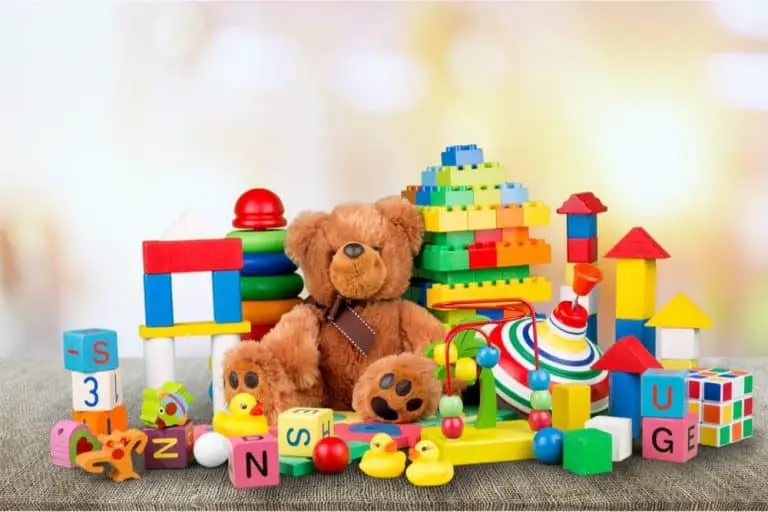Baby Keeps Spitting Up Breast Milk But Not Formula
Babies are born with small bellies. The estimated size of a baby’s tummy is the size of a cherry (Source). The tummy capacity increases gradually as the baby grows. It is for this reason that you need to breastfeed your baby frequently.
Baby spit-ups after feeding are quite common. Jenny is an experienced mother. She is aware of this. However, Magdalene just had her first baby. She came to me worried when her little one spit after feeding. It was a worrying trend, notably when she could not differentiate between spit-ups and vomiting.
It is every mother’s wish to feed the baby well. We all want our babies to gain weight and hit all milestones. We follow the pediatrician’s advice. They recommend exclusive breastfeeding to babies under 24 weeks.
Babies who are on exclusive breastfeeding are more likely to spit-up as compared to babies on formula. Magdalene switched to the formula for sensitive tummies under the doctor’s advice. Her nature of work could not allow her to breastfeed exclusively. She uses the Similac® Advance formula due to her tight work schedules.
Spitting up should not cause any alarm. Not unless it is associated with coughing, choking, and wheezing.
Several factors contribute to these spit-ups, as we will discuss later in this article.
Reasons behind Babies Spit-up
There are several reasons why babies spit up.
- The number one reason is newborns underdeveloped digestive system. During the first few months, the spitting up is quite common. But this should not worry you as it reduces with time. It may drastically reduce once you wean your little one.
- The pressure of breast milk varies from one mother to the other. When breast milk comes out with speed, it forces the child to swallow hastily, causing the baby to take air in the process. Ryan, a two-month-old, feeds aggressively. It is beyond his mother’s control. A lot of air creates pressure in his belly; hence, a wet burp is inevitable.
- Ashley is six months old. She is teething. It makes her drool a lot/ In the process of swallowing saliva, she takes in air. It increases her instances of spitting up.
- Other reasons for a baby to spit up include burp, to overfeed, and to drool. Burping allows a baby to reduce the air that they swallowed while feeding. In most cases, the burp will come out with some milk.
- There are a few medical reasons that may cause spitting up. A small percentage of babies have food allergies. The most common reason is an allergy to dairy products; a few have reported allergies towards onions, garlic, broccoli, and other types of foods. These products pass to the baby through breast milk. A mother nursing a baby with allergies is advised to avoid such foods. It takes up to four weeks for your body to clear the allergic product from your system. In the meantime, feed your child on a hypoallergenic formula such as the Soy formula.
Why Baby Keeps Spitting Up Breast Milk but Not Formula
Here are possible reasons why your baby keeps spitting up breast milk and not formula:
- It may be something in your diet that your little one isn’t happy about. You could try omitting certain spices and foods such including Broccoli, Cabbage, Tomato sauce, Garlic, Onion, Peppers, and anything acidic and see if it helps.

Why is spitting up less common when feeding the baby on formula?
Formulas are controlled diets for babies. They contain specific ingredients that are not affected by external factors. It is unlike breast milk, whose composition is directly affected by a mother’s diet.
It is improbable for a baby to spit up when on formula. Magdalene confirmed that the formula is thicker and heavier than breast milk; air does not carry along when the baby burps. However, in cases of allergic reactions, spitting may occur. Choose the right formula for a specific allergy. Consult your pediatrician for guidance.
Formulas contain more proteins as compared to breastmilk. Therefore a baby on formula feeds less often. It reduces the instances of spitting up. Magdalene told us that her daughter feeds 5-8 times a day since she switched to formula. When she was breastfeeding, she could feed her 10-12 times a day.
There are unique formulas for babies allergic to dairy products; Soy milk is one of such formulas. Other medical conditions are like loose muscles at the end of the esophagus or reflux, also known as GERD (Gastroesophageal Reflux Disease).
How do I know the baby is spitting up and not vomiting?
As earlier stated, spitting up is common. When it happens, the baby is not bothered by it; it is effortless. In some instances, you might notice that the baby is a bit uncomfortable. It should be a call for alarm; you need to call the pediatrician ASAP.
Vomiting is different from spitting. It comes with greater force and in large quantities. It also causes distress and discomfort. If the baby remains calm, it is most likely spitting up.
Check out on the following signs of telling apart vomiting from spitting up.
- Forceful spit up in large quantities
- Colored spit-up. It may be green or yellow. Normal spit-up is white.
- choking, wheezing, and coughing.
- Weight loss, slowed weight gain, fussiness, and discomfort.
- The baby appears sluggish and tired
- The baby wets the diaper fewer times than average.
- If the baby starts spitting up after 24 weeks
- The baby refusing to feed in many occasions
- Blood traces in the spit up or stool
- When the baby is irritable and cries for extended periods; about 3 hours a day
The above signs should lead to immediate medical attention. Prolonged vomiting may lead to dehydration.

How to Reduce Spit-Ups in Infants/Toddlers
- It is the most common method of reducing spit-ups. Ensure you burp the baby after every feed. Burping reduces the air trapped in the belly. Spit-up that occurs during burping is in small quantities. If your baby spits up a lot, you may consider burping in between feeding.
- The angle of feeding. Hold your baby in an inclined angle when bottle-feeding. It reduces the cases of your baby taking in air. It will reduce instances of spitting up. You may also consider experimenting with different breastfeeding positions. Choose the most comfortable ones for the baby. Sit the baby upright for 30 minutes after feeding. During this period, do not introduce active play.
- Tummy time. The pressure exerted on the belly when the baby is lying helps release the air in the stomach. You should wait for about 30 minutes after feeding to practice the tummy time.
- Bicycling baby’s legs. Hold your babies legs and move them in circular motions. Gently press the knees against the baby’s belly. The activity moves the baby’s intestines hence displacing the gas trapped inside.
- Infant Massage Baby’s Belly. Lay the baby on his/her back. In a clockwise motion, rub the baby’s belly gently. You can apply some mild pressure on areas around the abdomen. Repeat the process until you have expelled as much gas as possible.
- Feed the baby in a calm environment. Ensure that the surrounding is relaxed and free from distractions before feeding the baby. It helps the baby to focus, hence avoiding swallowing air while feeding. Do not leave the baby to get so hungry before feeding him/her. Hunger makes a baby frantic and distracted. It promotes swallowing of air.
- Make the hole of a nipple wide enough. Nipples of baby’s bottle come with a tiny or no hole. Ensure you make the hole wide enough to ensure comfortable feeding.
- Avoid overfeeding the baby. If you notice that your baby spits up every time you feed him, try to regulate the nursing process to avoid overeating. Doctors recommend shorter frequent feeding. Some babies enjoy feeding. Without your attention, they may consume beyond their tummy capacity.
- Ease pressure around the tummy while feeding. Check the diapers and waistband. Ensure they are not tight when feeding. Do not exert a lot of pressure on the belly during burping.
- Do not feed the baby on the engorged breast. Your milk production may be very high, engorging the nipples so quickly; Your breasts become hard and full. It hinders proper latching. It makes the baby swallow air when feeding. Avoid this incident by pumping excess milk.
- Monitor your diet. Your baby ingests nutrients from your body through breast milk. Some of what you ingest may be allergic to your baby. Check with your doctor if there is anything you need to scrap from your diet.
- Minimize the use of Pacifiers. Most parents use pacifiers to soothe their babies. It is all fun and game until gas fills up your baby’s tummy.
Dangers associated with spitting up
Spitting up is very healthy and safe. However, there are myths peddled around on how dangerous spitting up is. Many misleading recommendations may pose a danger to your baby.
When you let the baby sleeping on the stomach, the airway will be located lower than the esophagus; spit-up is likely to block the airway. It is expected to happen when the baby sleeps on the side. Judy advised Annie to let the baby sleep on her back. It cuts down the chances of chocking as the airway will be above the esophagus. (Source).
Recommended Baby Formulas For Sensitive Babies
Below are some of my recommended formula for sensitive stomach- (read a detailed review here).
- Similac Pro-Sensitive Non-GMO Infant Formula with Iron
- Similac Pro-Advance Non-GMO Infant Formula with Iron
- PediaSure Grow & Gain Kids’ Nutritional Shake
Final Thoughts On Why Baby Spits On Breast Milk and Not Formula
If your baby keeps on spitting even when on formula, it’s recommended you consult with your pediatrician. If you frequently travel with your child, I would recommend you to read this article on car seats for a reflux baby.




